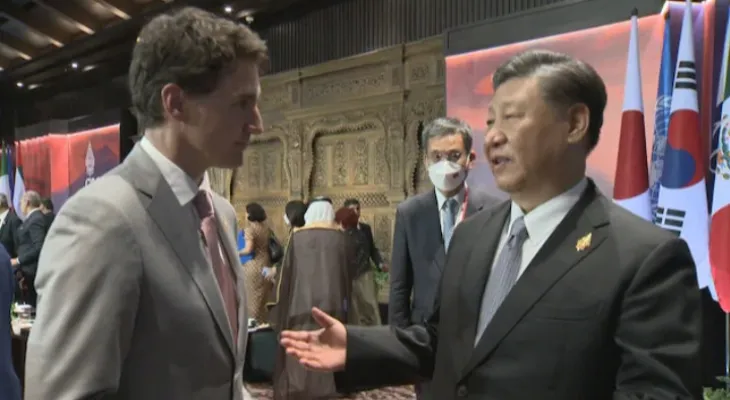Search here
Newspaper
Search here

Arab Canada News
News

Published: September 4, 2023
Observers said that divisions over Ukraine and climate change make joining the G20 statement unlikely.
This week, Prime Minister Justin Trudeau is heading to two international summits to push for expanding trade and strengthening ties with parts of Asia—a goal likely to be overshadowed by Russia's war on Ukraine.
Trudeau and International Trade Minister Mary Ng will attend the Association of Southeast Asian Nations (ASEAN) summit in Jakarta, Indonesia, from September 5 to 6. They will then be in New Delhi, India, from September 9 to 10 for the G20 summit. He will also stop in Singapore from September 7 to 8 to 'hunt' for new foreign investments.
Most international summits end with a joint statement outlining the goals and measures agreed upon by all member states. Last year, the G20, hosted by Indonesia, managed to reach consensus on several global issues, even including agreements specifically about Ukraine.
But with the G20 still divided over the war in Ukraine and other hot-button issues like climate change, experts are not holding out much hope for a similar outcome this year.
For his part, a senior government official, who was not authorized to speak publicly on the matter, said that achieving a joint statement this year at the G20 would be harder than last time.
Paul Samson, head of the Centre for International Governance Innovation (CIGI), also expressed doubt regarding the G20's ability to agree on an official statement this time.
Samson, who has co-chaired the G20 working group on the global economy for many years, pointed to ministerial summits in recent months that ended with so-called closing documents and summaries outlining each government's positions on various issues.
This is the first G20 since the last step led by China to expand the BRICS group—comprising Brazil, Russia, India, China, and South Africa—which sees itself as a counterweight to the G7 within the G20. Argentina, Egypt, Ethiopia, Iran, Saudi Arabia, and the United Arab Emirates have been invited to join.
While reaching a consensus outcome at the G20 seems unlikely, Canada hopes to make progress at the ASEAN summit towards completing a trade agreement with Indonesia and the region as a whole.
A senior government official stated, "We are aware of the criticism directed at Canada as a friend that sometimes appears and then disappears." He added that since Canada is now an official strategic partner of the Association of Southeast Asian Nations (ASEAN), it will return every year.
Attracting Southeast Asia's Attention
Government officials said Canada's priority when attending the ASEAN summit is to ensure that Southeast Asian leaders see this country as a key candidate for trade relations. At least one Canadian minister jokingly remarked that international leaders do not wake up thinking about Canada.
Jeff Nankivell, president and CEO of the Canada Asia Pacific Foundation, also said this may not be truer anywhere than in Southeast Asia, which is very far from Canada geographically.
These summits provide an important opportunity to attract the attention of leaders in the region.
Nankivell also mentioned that Canada is eager about Southeast Asia because of its potential to export agricultural food—an area where the region suffers from severe food security issues, worsened by the war in Ukraine—while the region is interested in Canada as a provider of clean technology services and goods.
After Indonesia, the Prime Minister will quickly stop in Singapore for a bilateral meeting with Prime Minister Lee Hsien Loong to boost investment opportunities in Canada.
The senior government official noted that there is no major global financial and business hub in that region more than Singapore.
The driving force behind all of this is Canada’s strategy in the Indo-Pacific region for the past year—this is why Canada’s new special envoy to the Indo-Pacific region, Ambassador to Japan Ian McKay, will be part of the delegation in both Indonesia and Singapore.
India in the Middle
The host country, India, expected to be a BRICS member with strong ties to the West, will likely seek to follow a compromise and push for the interests of developing countries, particularly regarding climate change and food insecurity.
This will include pressing developed countries like Canada to finally come up with the $100 billion they promised to help developing countries mitigate the impacts of climate change.
Discussions on food insecurity are also expected to be more difficult as they inevitably lead back to the war in Ukraine—specifically Russia's refusal to renew the deal that had allowed Ukraine to continue exporting grain from its Black Sea port.
Comments